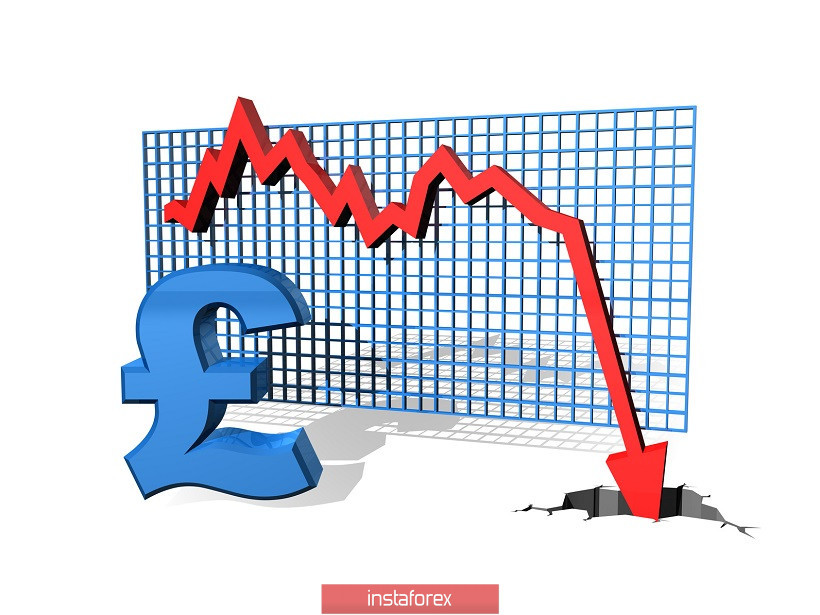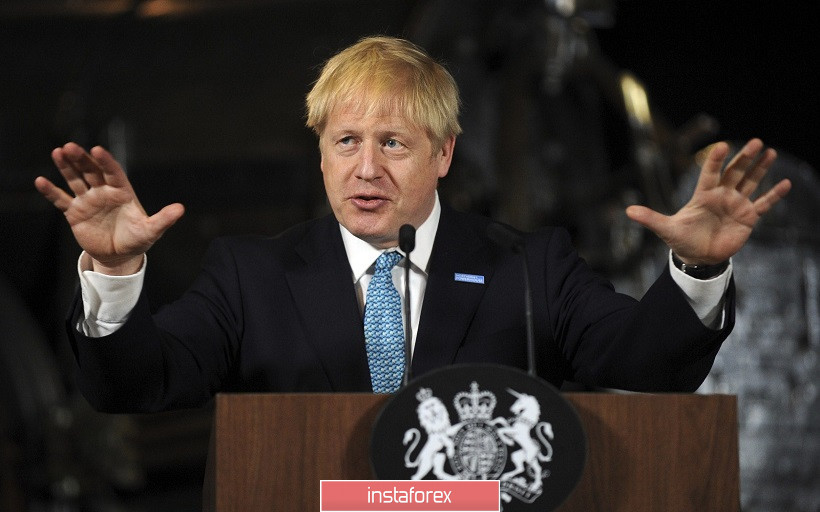The pound reached two-year lows against the dollar: the last time the price was in the 22nd figure was back in March 2017. The question of Brexit, which puts tremendous pressure on the British currency, was once again to blame. It seems that the market is beginning to realize that Boris Johnson is not bluffing, but is seriously leading the country to withdraw from the EU without an agreement with Brussels.
By the way, the devaluation of the pound to a record low of 1.1986 (at the end of 2016) was due to similar reasons, when Theresa May for the first time could not agree on a deal with Europe. At that time, the market was fully confident that Brexit would take place on March 31, and the parties would not have time to coordinate their positions before this date. It was only at the beginning of 2017 that it became clear that both Europe and Britain were ready to make concessions: the deputies of the House of Commons legally "moved" the exit date from the EU, while the Europeans extended the negotiation process at an extraordinary summit. After that, the pound began to grow (having reached its local peak in the area of the 43rd figure in March 2018) and has never since dropped to current levels. The fact is that after the first postponement of Brexit, traders were already skeptical about mutual threats about the implementation of the "hard" scenario.

In turn, London and Brussels justified this skepticism: the "X date" was postponed several times, the last time - until October 31. It is likely that if Theresa May was still at the helm of the government, the Brexit date would again be postponed, for a longer period - until 2022 (that is, in fact, until the next Parliamentary elections in Britain). Neither May, nor the deputies of the House of Commons, nor Brussels had and do not have the political determination to implement the hard version of Brexit. Therefore, the corresponding threats in their mouth sounded formal and did not have a significant impact on the market.
But now the situation is radically different. Boris Johnson formed his government from among the ardent supporters of Brexit and began a large-scale campaign to prepare for the country's withdrawal from the European Union. For example, this week, the newly appointed British Treasury Chancellor Sajid Javid will publish an estimate of the additional costs - according to preliminary data, this amount will be one billion pounds. Moreover, a tenth of this amount will be used to conduct an "information educational program" throughout the country. On the so-called "advertising Brexit" spend more than 100 million pounds - this is an unprecedented amount for such an event. Johnson, in particular, wants to organize the delivery of informational brochures to literally every home in Britain. Information blocks of a corresponding nature will also be placed on television, radio, and internet resources - again, at the expense of the British budget.
In addition, Johnson formed the so-called "military office" (as he was christened in the press) - a working group of six ministers, each of whom is responsible for preparing for the hard Brexit in his own direction. Michael Gove, who announced this weekend that the country's exit without a deal has now become a "very real prospect," heads this group, so the British should be prepared for such a scenario.
Dominic Raab, who is now heading the British Foreign Office, in turn, today acknowledged that London is accelerating preparations for the hard Brekzit, which will take place "in any case and in any weather" on October 31. According to him, at his today's meeting, the prime minister instructed the government to begin preparations for the implementation of this scenario, and the Cabinet of Ministers supported this idea.

Here it is worth recalling that Boris Johnson, in the course of his first speech before the deputies of the House of Commons, demanded that Brussels abandon the backstop mechanism. At the same time, he reiterated that he is ready for Brexitwithout a deal if the EU does not agree to change the existing deal. Representatives of Europe, in turn, rejected the proposal (or rather, an ultimatum) Johnson, after which he gave the "green light" to the start of the preparatory campaign.
Thus, the hard Brexit gradually acquires real features, and the market gradually realizes the reality of what is happening. If the Parliament does not intervene in this process, blocking Johnson's unhindered path to the implementation of this scenario, the pound will continue to fall. The closest support level now stands at 1.2180, which corresponds to the bottom line of the Bollinger Bands indicator on the monthly chart.





















